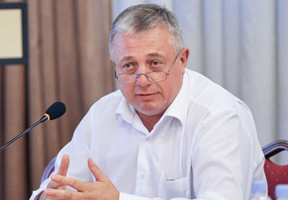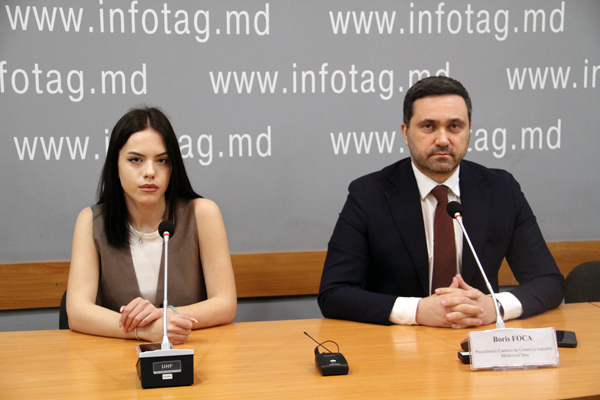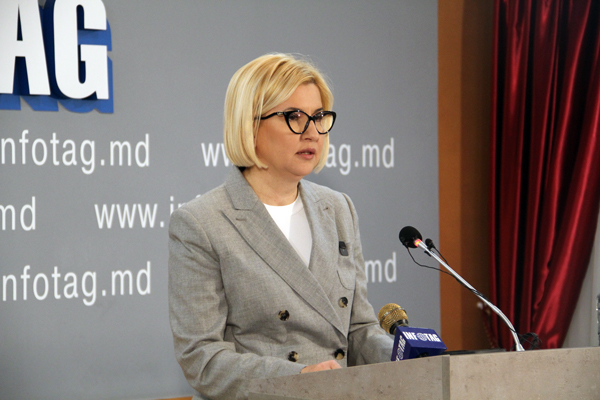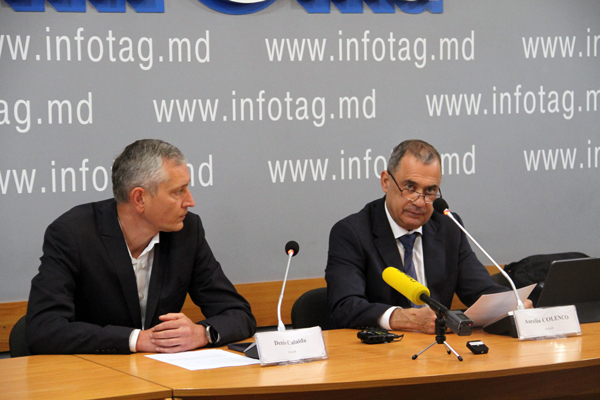Interview
THE MAIN ACHIEVEMENT OF THE PAS PARTY IS OBTAINING EUROPEAN UNION CANDIDATE STATUS

(In an interview with INFOTAG news agency, the director of the Institute of Oral History, political commentator Alexei TULBURE assesses the PAS Party governance, the changing political reality against the background of the war in Ukraine, the Moldovan opposition and the future local elections).
"I": After a year and a half of governance of the Party of Action and Solidarity (PAS), controlled by President Maia Sandu, what political and economic results can we talk about?
Alexei TULBURE: The political results are obvious. Despite the fact that the PAS Party is losing popularity (polls show this), the formation maintains the leading position in voters' preferences. However, and this is already obvious, in the next parliamentary elections PAS Party will not be able to win the majority required for a one-party government. Another obvious result is the consolidation of international support for Moldova (read: the government) from the West. Moldova, by and large, has coped with the flow of refugees from Ukraine after the war began, and continues to support Ukraine fighting the Russian aggressor. All of this was taken into account when the decision was made to grant Moldova the status of a candidate country for accession to the European Union. This status is the main achievement of the country during a year and a half of PAS Party rule.
I find it difficult to name any successes in the economy. However, we must not forget that there is a war going on nearby. It was absolutely wrong not to take this into account when assessing the economic situation.
Among the relatively successful actions of the government there is management of the energy crisis and compensation of public utility payments to the population.
Fundamental reforms, in practically all directions, beginning with education and ending with justice, either have not been started or have not yet yielded results. This is a big problem for the country and for the ruling party because the reforms were promised and only they can change the situation for the better. And a party which promises reforms and does not carry them out, will continue to lose support from the population.
"I.": How do you assess the actions of the opposition? Is it capable of uniting?
Alexei TULBURE: The opposition is a strange one. One gets the impression that these are political formations which have remained in the past and which cannot in any way keep up with the rapidly changing reality.
There has been a war going on for a year - full-scale fighting a few hundred kilometers from our border, a war that has changed everything in the world. And the Moldovan opposition acts and speaks as if there is no war. Political formations, parliamentary and extra-parliamentary, have not even expressed their position on the war in Ukraine, and this is the main thing that happens to all of us, to Europe today. In Ukraine, Russian occupants are destroying cities and killing civilians, and the Moldovan opposition is sending the country's leaders to Moscow to negotiate a lower price for gas. This seems to me to be wild.
I think that such an opposition, which ignores reality, has no right to become authority. Adequate, serious politicians should come to power.
Moldova received the status of a candidate country for the European Union membership. It would seem that this is the moment when, against the background of failures of the ruling party, the opposition could show its worth, come up with better, maybe alternative proposals of reforms, fulfillment of EU conditions, etc. Alas. This is more true of the so-called "left-wing" or "pro-Russian parties." This opposition can probably consolidate, but what will it offer to the country?
There is a pro-European opposition outside the parliament, but it is still very weak and cannot compete with the authorities. Nevertheless, the voice of these politicians is important; these parties have expertise, the ability to offer solutions to the problems the country faces. There are prospects here.
The poor quality of the opposition, and this is our current situation, is a huge problem for the country. Because the opposition is the future government, and we need the future government to be sane and effective.
"I": What is the impact of the war in Ukraine on the political situation in Moldova?
Alexei TULBURE: If in general, it is decisive. I talked about it a little bit above. Those political forces that have developed and expressed their position on the war, that plan their activities taking into account what is happening in the neighboring country, etc., have a much better chance of success. They take into account, rather than ignore, reality. These politicians are also treated differently by their international partners. Who wants to deal with people who don't have the courage to call things by their proper names!
As I said, the war changed everything. The Transnistrian conflict is a prime example of this. For me, it is absolutely clear that the resolution of the conflict today depends entirely on the outcome of the war. This is a determining factor. Russia has practically lost its influence in the region, and this influence will finally disappear after the end of hostilities. The main obstacle to the unification of the two banks will disappear. Not to understand this, to pretend that "business as usual" continues in resolving the conflict, is to ignore the obvious, to speak of a reality that no longer exists. Do these politicians have any prospects? I think not much.
In local elections, the theme of the war will matter somewhere, somewhere it will not. But on the whole, to a much lesser degree than at the parliamentary or presidential elections. At the local level everyone is more interested in local problems.
























Add Comment